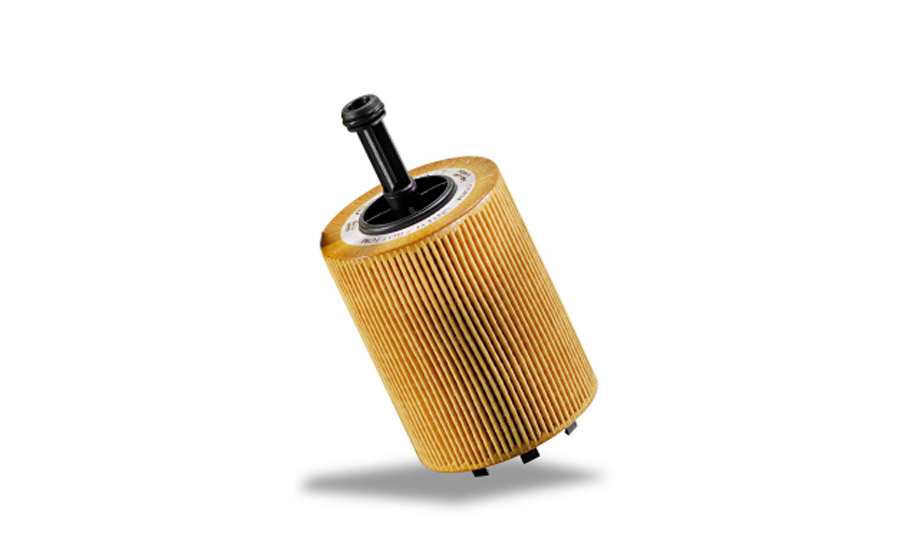Oil filters
Modern combustion engines required first-class lubrication for seamless operation. As engine performance increases and service intervals get longer, it is not only engine oils that need to meet ever more...
Function

Modern combustion engines required first-class lubrication for seamless operation. As engine performance increases and service intervals get longer, it is not only <link https://www.my-cardictionary.com/engine.html - - "Öffnet internen Link in neuem Fenster">engine</link> oils that need to meet ever more stringent requirements. Above all, the quality of the oil filters used plays a central role in avoiding damage caused by dirt particles, soot or unburned fuel in oil.
Dirt
During the combustion process, both dirt particles and combustion residue such as
- dust,
- metal debris,
- oil carbons or
- soot get into the oil, soiling and thickening it.
Tasks of oil filters
Increasing engine performance combined with decreasing fuel consumption, high-performance lubricating oils and new challenges all the time in car manufacture are placing additional requirements on oil filters. Development trends are increasingly moving towards compact oil filters which are integrated into the engine and perform a range of other tasks in addition to filtration. These filters feature the use of metal-free oil filter elements made from the very latest filter media which can be relied upon to achieve maximum performance values consistently even in the case of long intervals between changes.
Specific designs
There are specific designs for special applications such as transmission oil coolers. Spin-on oil filters (screw-on oil filters) Thanks to efficient filter performance, reliability and ease of installation, the screw-on oil filter has been an important component in oil filtration for many years. Screw-on oil filters can be used in both full-flow filtration and bypass filtration. Compact oil filter modules Both the cleanliness and the temperature of lubricants play an important role in the reliability and service life of modern engines. Compact oil filters which can take care not only of filtration but also of the cooling function are increasingly being used for permanent monitoring of these two factors. Oil filter systems of this type are adapted to meet the needs of the prevailing engine environment and can also take over a range of other tasks. The elements permanently integrated in these modules include
- a bypass valve,
- a return check valve,
- a ribbed oil cooler,
- an electrically controlled coolant thermostat,
- the preparation for alternator cooling,
- a filler neck for topping up oil or an oil pressure switch.
Variants of oil filters
In terms of function, oil filters can be divided into two groups: Full-flow filters and combined full-flow/bypass filters. Full-flow filters Full-flow filters are installed in the oil circuit in such a way that all of the oil to be cleaned flows through the filter during each cycle. With combined full-flow/bypass filters, approximately 90 to 95% of the oil flows through the paper star of the full-flow filter, whilst approximately 5 to 10% flows through the bypass filter or the bypass centrifuge. Bypass filters Bypass filters are fitted with finer filter media and are thus capable of continuous super-fine filtration. As the areas of application for oil filters and the requirements they are expected to meet vary, these filters are available in a variety of designs.
Safety
High-quality oil filters are characterised by a performance spectrum that is tailored precisely to meet the requirements of the relevant application. Their features include:
- A housing which is stable in the face of pressure and pulsation as well as corrosion-proof
- A filter medium which is consistently very strong throughout its entire service life
- A return check valve to ensure that the filter and oil channels do not run dry when the engine is switched off and thus that oil is supplied quickly when the engine starts up
- A bypass valve to safeguard the oil supply during cold start phases as well as if change intervals are significantly exceeded and the oil filter is subject to heavy soiling– Safe assembly and tight connections
Depreciation
Rates of wear are being slowed down all the time thanks to modern lubricants and filter systems that have been adapted accordingly. In this context, filters and oil work hand in hand in a partnership in which high-performance oil filters are responsible for removing particles from the oil which have accumulated as a result of soiling and wear in the lubricant circuit. If filtration is insufficient, the mixture of oil and impurities can, over time, pose a danger to the engine. Particles penetrate the narrow bearing gaps, causing serration with gradual wear of pistons, bearing bushings and bearings. These risks can be avoided with high-quality oil filters in original equipment quality and regular replacement of oil filters and engine oil. The performance and the value of engine and vehicle are thus maintained in the long term.
Environmental protection
One of the primary factors behind vehicle manufacturers working in close collaboration with mineral oil and filter manufacturers is the desire to extend oil change intervals for reasons relating to the protection of the environment and service-friendliness. As a result, change intervals of 30,000 to 50,000 km are not unusual in today's passenger cars. However, changing filters at regular intervals is vital. A new oil filter will restore the system to the necessary capacity for absorbing solid particles and will ensure that oil can flow unhindered in the oil circuit. Ultimately this saves fuel and money, as well as protecting the environment. Brand manufacturers produce oil filters in compliance with the most stringent of environmental guidelines. Universal take-back systems ensure that spin-on oil filters are recycled. From the point of view of the environment, metal-free filter elements (used in oil filter modules) are the better choice. The reduction in the use of raw materials in production, less waste as a result of service and maintenance work and improved disposal processes result in a comparable reduction in impact on the environment.













